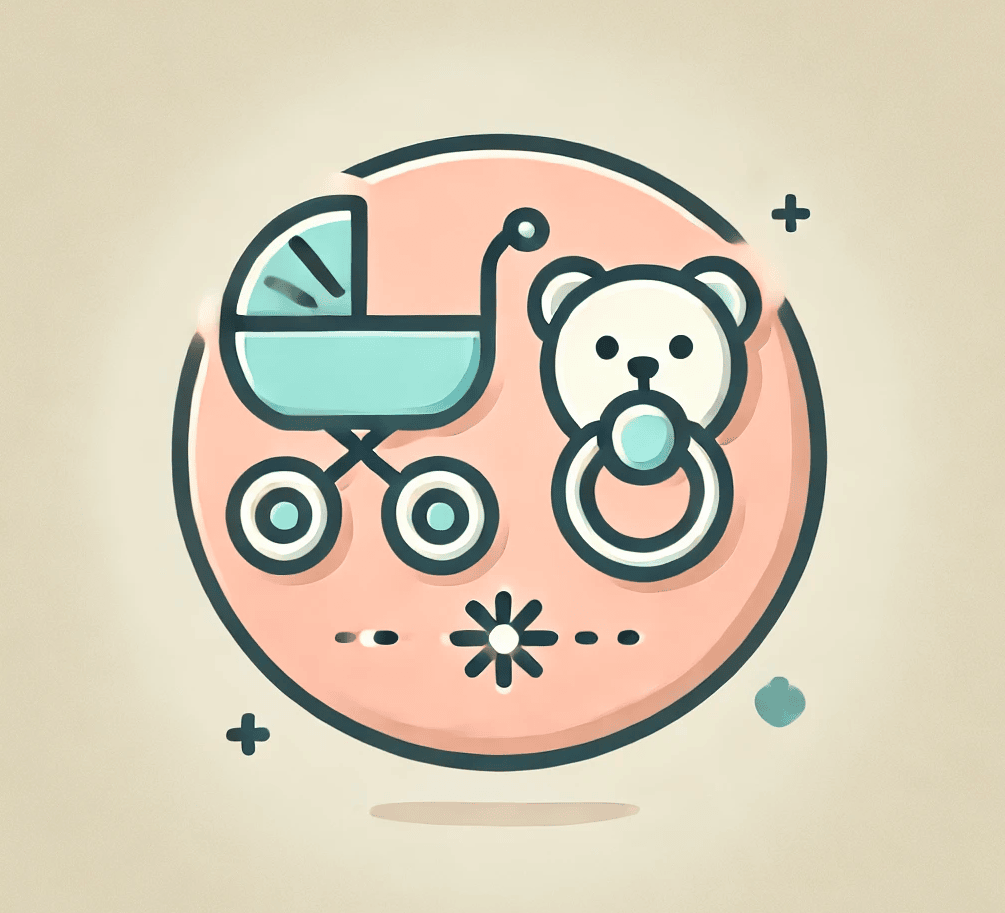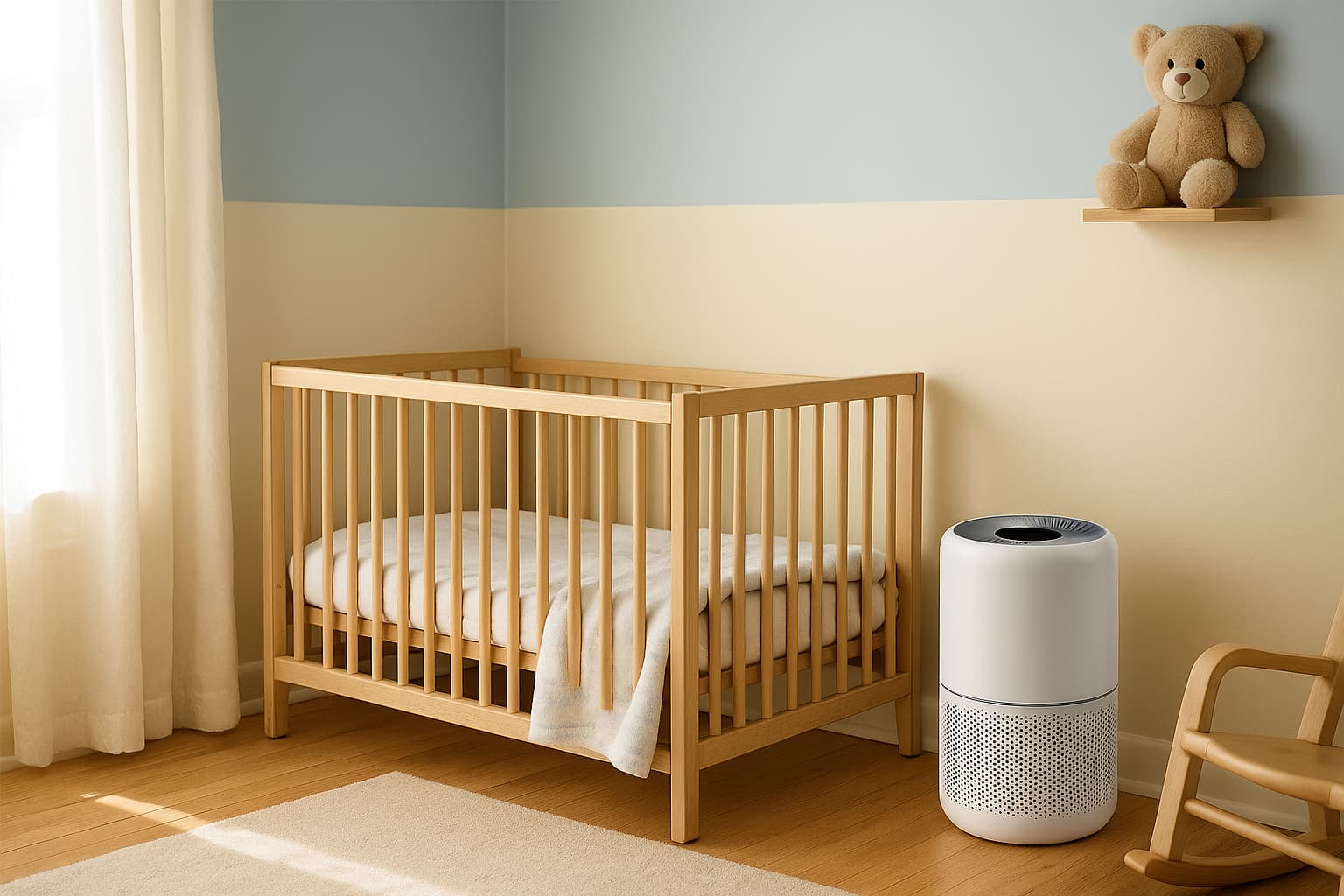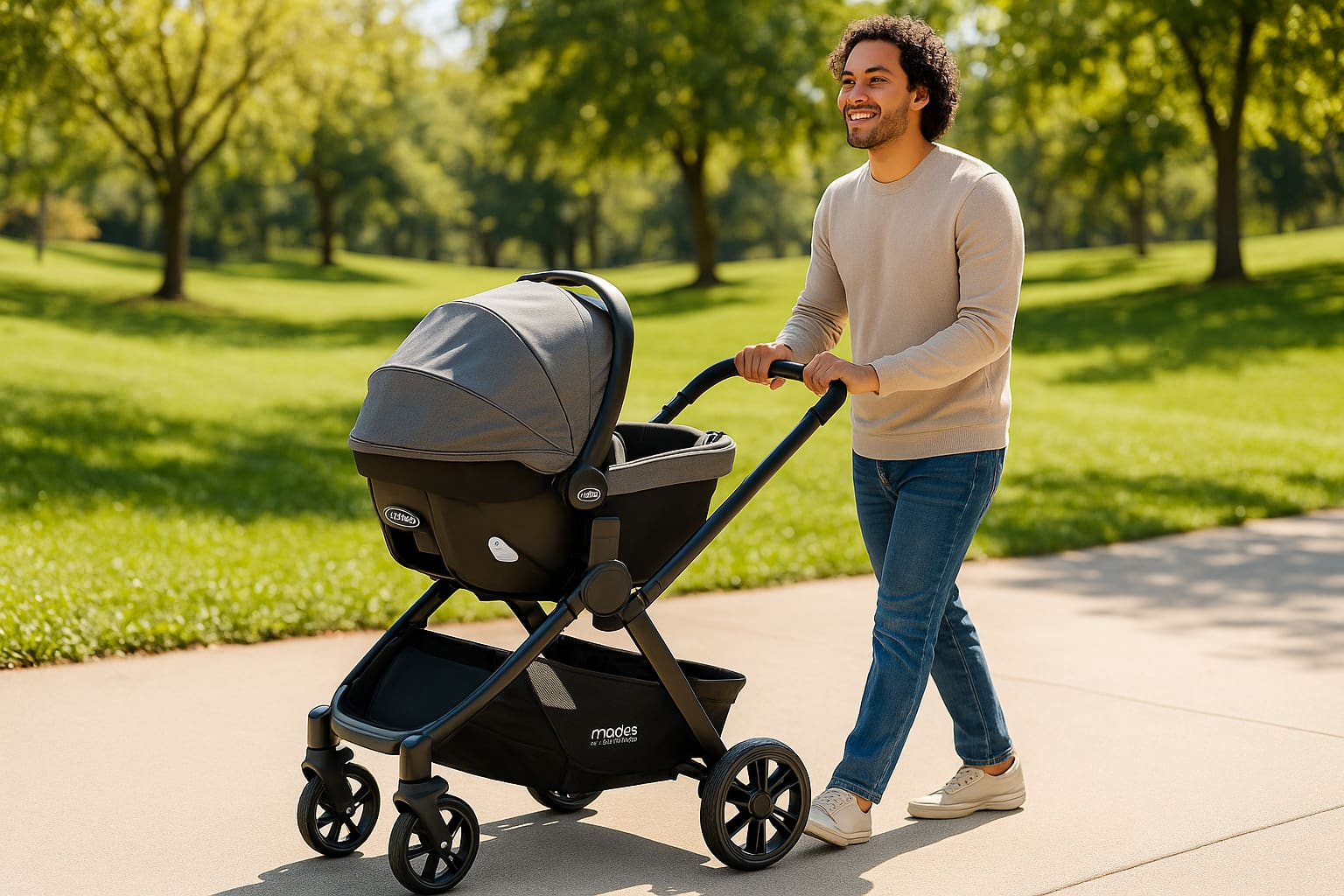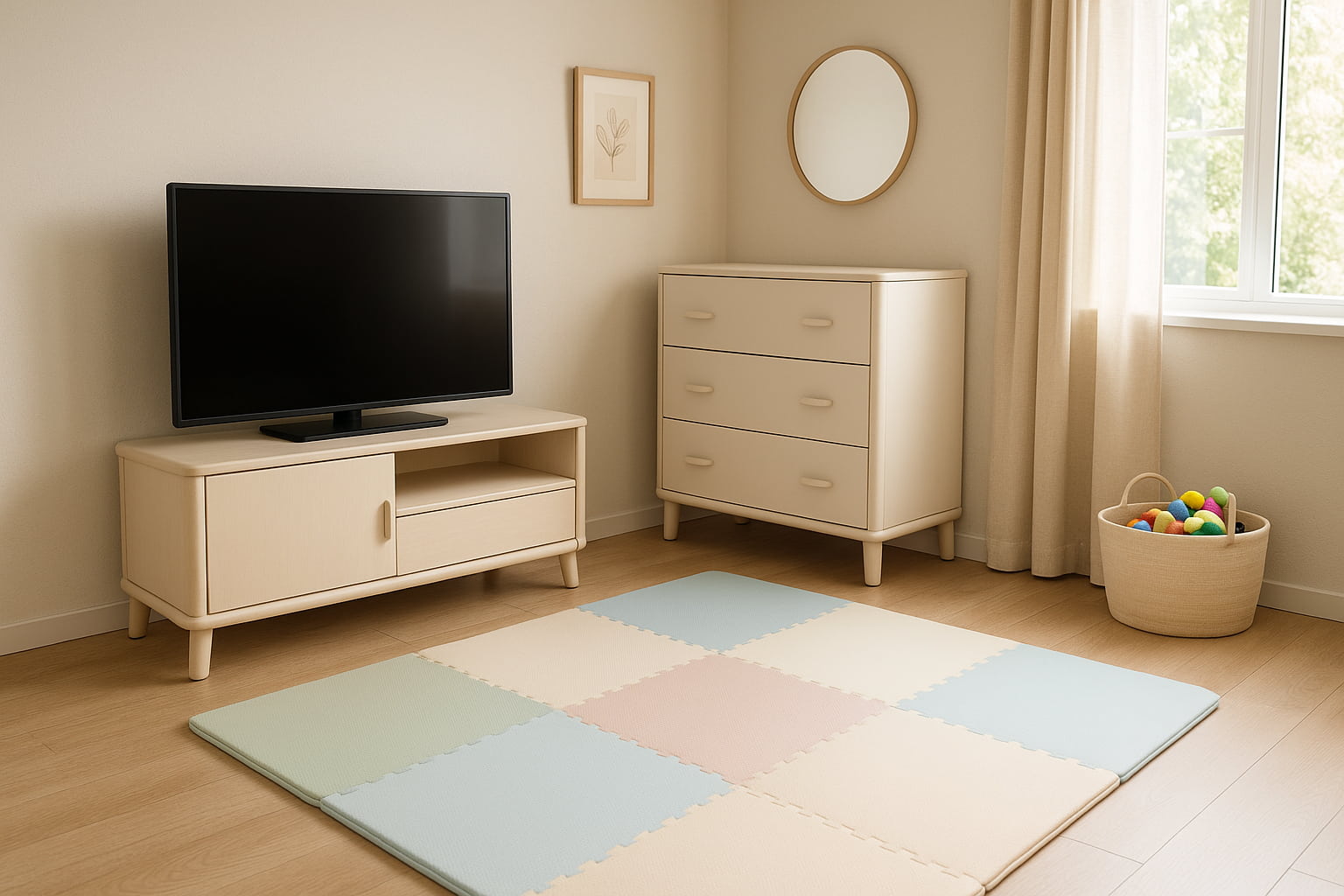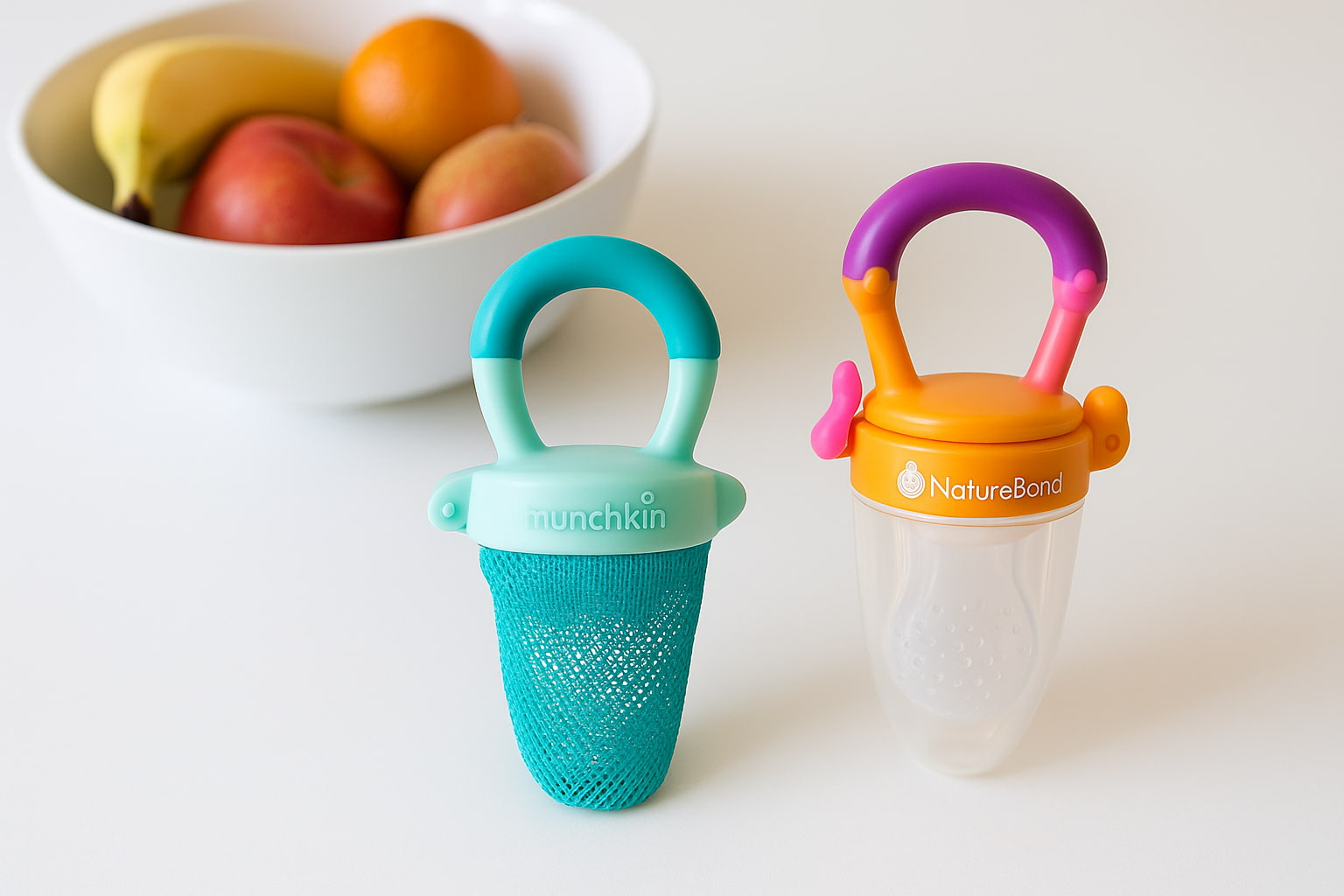Picking a baby monitor sounds simple until you realize how different today’s options really are.
Some track breathing, send alerts to your phone, and record sleep cycles. Others just let you hear your baby clearly from the next room. Both sound useful, but only one fits your lifestyle.
So, how do you choose between smart monitors vs traditional monitors?
This guide compares what actually matters for parents in 2025:
- What features help vs what just feels like overkill
- EMF exposure and safety
- Privacy risks and app fatigue
- Real pros and cons from a parent’s point of view
Let’s find the monitor that makes your life easier, not just more complicated.
🧠 Do You Know?
According to pediatric sleep experts at SleepFoundation, sleep quality isn’t about the monitor. It’s the sleep environment that matters most. Monitors help you observe, but it’s how you respond that truly matters.
🔍 Quick Feature Breakdown
| Feature | Smart Monitor | Traditional Monitor |
| Video Quality | HD / 1080p + Night Vision | Basic digital or analog video/audio |
| App-Based Monitoring | Yes, via phone/tablet | No separate parent unit, only |
| Sleep/Breath Tracking | Yes (wearable or camera-based) | No |
| EMF Output | Higher due to Wi-Fi + Bluetooth | Lower, especially FHSS-based models |
| Privacy/Security | Requires encryption + Wi-Fi | Local-only more private |
| Subscription Needed | Often (for full features) | Never |
| Battery/Power Use | Higher (more frequent charging) | Lower battery life |
🎧 Not sure if you even need video or just audio? The percentage of parents who end up switching will surprise you. Our Audio vs Video Monitor Guide makes the choice easier.
📡 What Is a Smart Baby Monitor?
Smart baby monitors offer features like the following and connect to your smartphone app and Wi-Fi network:

- Sleep summaries
- Breathing or motion detection
- 2-way talk and sound alerts
- Activity reports
- Video history or highlight reels
Some even integrate with AI-powered sleep coaching tools or wearable trackers like the Owlet Smart Sock.
Pros
- Lots of data for anxious or tech-savvy parensts
- Check in from anywhere
- Great for long naps or remote work
Cons
- Needs constant Wi-Fi
- If not secured, it can be violated
- Often requires monthly fees
🔐 Worried about monitor hacking or Wi-Fi security? You’d be surprised how simple changes protect your baby. See our guide on hacking baby monitors here.
🔊 What Is a Traditional Baby Monitor?
These monitors offer sound (and sometimes video) via a dedicated parent unit. No apps. No Wi-Fi. Just a straightforward, reliable connection.

They often use FHSS or DECT signal types, both are encrypted and hard to intercept.
Pros
- No apps, passwords, or updates needed
- No risk of online hacking
- Often more affordable
- Lower EMF exposure
Cons
- Limited range (usually 900-1,000 ft)
- No remote check-in
- No sleep data or coaching insights
🛍️ Smart vs Traditional Baby Monitors: 2025 Product Picks
Looking for a baby monitor that fits your parenting style? Here are two smart and two traditional picks trusted by parents. Each offers safety benefits without overcomplicating things.
📱 Smart Monitor Picks
1. Nanit Pro Smart Monitor + Breathing Wear: The Tech-Forward Choice for Hands-Off Monitoring
This monitor does more than just stream video. It tracks sleep, breathing patterns, and sends summaries straight to your phone.
🍼 Why Parents Love Nanit Pro
- Sleep Analytics: Auto-generated sleep summaries give peace of mind overnight.
- Breathing Wear Integration: Monitors breathing motion without the use of cords or wearables.
- Remote Access: Use the Nanit app to check in from any location.
- Crystal-Clear Video: Sharp 1080p night vision lets you see every detail.
💡 Thinking About It?
Trusted by thousands of data-savvy parents and often featured in “best of” baby tech roundups.
2. Owlet Dream Duo Monitor: Silent Sleep Insights with a Wearable Twist
This duo pairs a smart HD camera with a wearable sock that tracks your baby’s heart rate and oxygen, perfect for overnight reassurance.
🍼 Why Parents Love Owlet Dream Duo
- Health Tracking: Tracks heart rate and oxygen for added peace of mind.
- HD Video Feed: Watch and listen clearly from the app.
- Smart Notifications: Alerts you only when needed, not for every toss and turn.
- All-in-One View: Health data and camera feed on one screen.
💡 Thinking About It?
Frequently sells out among new parents and is recommended by pediatric sleep coaches.
🎧 Traditional Monitor Picks
1. VTech DM221 Audio Monitor: Simple, Secure Audio That Just Works
This reliable, audio-only monitor skips the apps and streams crystal-clear sound with a strong range, no Wi-Fi needed.
🍼 Why Parents Love VTech DM221
- DECT 6.0 Sound: No static or interference, even through walls.
- Long Range: Up to 1,000 feet for big homes or yards.
- Plug-and-Go Setup: No accounts, passwords, or updates required.
- Night Light on Baby Unit: Built-in soft glow helps soothe little ones.
💡 Thinking About It?
One of the highest-rated audio monitors on Amazon, with over 25,000 reviews.
2. Infant Optics DXR-8 Pro Video Monitor: A Wi-Fi-Free Video Favorite for Peace of Mind
This traditional monitor is loved for its secure signal and parent-focused design. It offers video flexibility without apps or internet.
🍼 Why Infant Optics DXR-8 Pro Is Chosen by Parents
- FHSS Signal: Military-grade connection that can’t be hacked.
- Pan/Tilt/Zoom Camera: Adjust angles remotely via the parent unit.
- Expandable System: Install up to four cameras in various rooms.
- Dedicated Screen: No phone or app distractions while monitoring.
💡 Thinking About It?
Frequently ranks #1 in non-Wi-Fi monitor lists and is praised for its reliability.
🧸 Final Verdict: Smart Monitors vs Traditional Monitors,
What’s Best for Your Baby?

When it comes to smart monitors vs traditional monitors, it’s not about which one is better’s about what you actually need.
Smart monitors are feature-rich and perfect for tech-comfortable parents who want remote check-ins and data insights.
Traditional monitors? They’re simple, secure, and app-free, ideal for parents who prefer fewer distractions.
Both options keep your baby safe. But the right one gives you peace of mind without adding more stress.
So ask yourself, do you want more data, or just more sleep?
Pick the monitor that supports your parenting style, not one that overwhelms it
💡 Did You Know?
According to the UK-based Birmingham Control Centre, analog audio monitors emit the lowest EMF. Digital audio (like DECT) ranks medium, while smart monitors especially Wi-Fi video models, transmit the most radiation.
👣 Want a monitor that doesn’t need an app or account setup? You’d be surprised how effective non-Wi-Fi monitors can be. Compare them in our Wi-Fi vs Non-Wi-Fi Baby Monitor breakdown.
🧵 Quick Recap: Which Baby Monitor Should You Choose?
Still unsure which type fits your parenting style? Here’s a quick summary based on what real parents need:
✅ Choose a Smart Monitor if:
- You want to check on your baby from work, errands, or another room
- You’d benefit from sleep tracking, breathing insights, or remote alerts
- You’re comfortable with apps, updates, and Wi-Fi-based features
🍼 Top Picks:
1. Nanit Pro Smart Monitor + Breathing Wear
✅ Choose a Traditional Monitor if:
- You want a plug-and-play setup with no Wi-Fi or apps
- You prefer lower EMF, local-only transmission
- You’re concerned about online privacy, or you live in a rural area with weak internet
🍼 Top Picks:
2. Infant Optics DXR-8 Pro Video Monitor
🧠 Curious how EMF plays into this decision? You’d be surprised how signal types affect your baby’s exposure. Learn more in our EMF Radiation & Baby Monitors guide.
⚠️ Affiliate Disclaimer
This post may contain affiliate links. We might receive a tiny commission if you decide to buy from one of them, but there won’t be any additional fees. We appreciate your support in ensuring that all parents can access free safety-focused reviews.
✍️ Author Byline
By Find For Baby, we help parents cut through baby tech noise with honest, safety-first guides backed by real research and real-life parenting.

